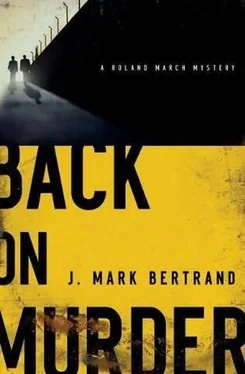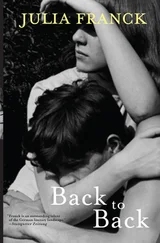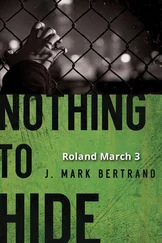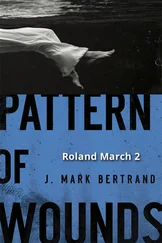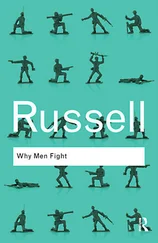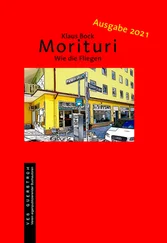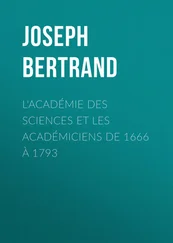As the entrance gets closer, I remember the blanket of cold air that descended the first time I was here. Pulling the glass door open, I can almost feel it. But no, as I pass over the threshold in Cavallo’s wake, the air is only marginally cooler inside. No respite awaits us inside the church, not even this.
The crowd carries us along through the soaring atrium, and I find myself wondering how many of these people actually knew Hannah. There are surely too many. Glancing around, I observe what I always do at funerals, a throng of people behaving only marginally more sober-minded than usual, most of them dressed for comfort in everyday clothes, a few dressed more formally – usually older, usually present in some quasi-official capacity. The teenage kids in front of us wear jeans and striped rugby shirts, while the women behind us, chatting among themselves, are in blouses and khaki capri pants and sensible flats.
I feel a hand on my elbow and, turning, find Gina Robb staring up at me through her cat-eye glasses. She tugs me out of the crowd and beckons Cavallo to follow, guiding us through the side exit toward the church offices. Her demeanor is grave, her eyes raw from crying, and whenever she tries to explain herself, her throat seizes up. So she relies on hand gestures to convey the fact that someone wants to see us.
Donna Mayhew’s office door stands open, but the entrance is blocked by a throng of attendants. Gina parts them wordlessly, conducting us inside until we are face-to-face with the bereaved mother. She stands, austerely composed, at the very corner of her desk, draped in swathes of black, with black netting over her face. In contrast to the casual mourners in the atrium, she’s like a figure from the distant past. Her hands, clasped tightly in front of her, are also gloved, prompting me to wonder where this funeral regalia comes from. I keep a black suit in the closet for funerals, but then I attend them with a fair amount of regularity. Of course, this is not her first bereavement. The woman has lost her husband and now her daughter, too. She is alone in the world, a feeling I can relate to only in part.
“Detective,” she says, extending a hand to me. “They tell me it was you who found her body.”
An awkward cough at the back of my throat. Do I correct her or let the error stand? Glancing around, I see men in dark suits, women with clenched tissue pressed to their eyes, a murmur of grief passing between them.
Cavallo tries to say something. I turn, and find her face wet with tears, her lips trembling. Donna Mayhew opens her arms and the two women embrace. I glance away. In the corner, Carter Robb stares glumly back at me. We haven’t spoken since the day I summoned him to the scene. Then, I’d been unable to coax him anywhere close to the body, and he’d only agreed reluctantly to enter the derelict building for a look at the purse. Trying to confirm it was hers, he couldn’t stop choking on his words. He’d wanted to help, to do something, but that wasn’t what he’d had in mind.
“You have nothing to apologize for,” Mrs. Mayhew is saying. “This was not your doing. We all have to be brave in the face of it. The Lord gives and he takes away.”
The words seem empty to me, and desolate, but her voice is anything but. There is a strength in her that wasn’t here before, back when there was still some chance of a happier outcome. She no longer agonizes over whether she’s meant to drink from the cup. Now she knows, and the effect of the knowledge is heartbreaking to witness. Some people, when they suffer, derive power from the ordeal, a certain dignity, and along with it the grace to bestow benediction, as potent as it is unlooked for. In response, the usual hollow assurances about bringing the killer to justice die on my lips, and sensing my inability, she nods, as if she wouldn’t want me to say such things, to commit myself to the impossible.
“I wanted to see you both,” she says, “because I know some of the things I’ve said to the media must have sounded like criticism, and I want to say I’m sorry. It was not directed at you.”
Cavallo tries to silence her with a lifted hand.
“It’s all right,” I say. “You don’t need to justify yourself to us.”
“I also wanted you to know that I’m done. I won’t talk to them anymore. I didn’t want to at first, and I only did it in the off chance it might help bring my baby home. But now there’s no reason, and I won’t talk to them again. I wanted you to know.”
She speaks quietly, with a determination that doesn’t seem congruent with the subject, as if the decision she’s referring to runs much deeper than the one her words avow. An embrace of silence encompassing much more than television interviews, as if she’s sworn off saying anything ever again.
Her gloved hand closes around mine briefly, squeezing, her eyes gazing at me through the netted veil. “I know you’ll do everything you can. Thank you.”
I step back. She gives Cavallo a similar blessing, and then we both retreat out into the hallway, joined by Gina Robb and her silent husband. He comes close to me, leaning almost to my ear, speaking in a harsh whisper.
“I want to talk to you later. I want to do more this time.”
This time, as if there’s a second round to play and everything might still come right.
We leave them, rejoining the other mourners. Cavallo wipes her eyes with the back of her hand, pretending I’m not beside her, probably embarrassed by her show of emotion. We file into a wide, soaring auditorium, a stadium of worship with a semicircle of seats around a raised platform. Behind it, a multi-tiered choir loft and a backstop of abstract stained glass, but I’m not looking past the platform. My eyes get no further than the casket at its base. The lid is closed, and a large portrait of Hannah is erected on an easel behind it. A hush descends on everyone who sees it, the crowd growing still, struck by the reality of that small wooden box.
Another casket flashes in my mind, another body. I see Charlotte pale with grief, the vein in her forehead throbbing, the bruises from the car accident still evident under a layer of makeup. My eyes sting.
“I can’t stay,” I say, turning back, not waiting for any reply, hoping she won’t come after me, hoping she won’t try to follow.
Hedges casts a disapproving eye over my cubicle, staring the way he might at a spelling error in the first line of a report. I weather the scrutiny. There’s nothing I can do about the mess. Casework grows like weeds all around me. My cup overruns, and so does my murder book. In addition to evidence recovered with Hannah’s body, the copious lab work that’s been trickling in all morning, and the first wave of file boxes couriered over from the former task force hq in the Northwest, there’s also a layer left over from the Thomson investigation, things I haven’t had time to box up for Wilcox. Aguilar has been detailed to help, and Bascombe checks in every half hour or so, looking at me the way a kid looks at a magician, wondering what’ll happen next time I reach into my hat. So I haven’t had a lot of time for tidying up.
“Everything all right, sir?” I ask, hoping to move him along.
He can’t bring himself to give the order – Clean up around here, all right? – but I can see how bad he wants to.
“You have everything you need?”
“Yes, sir.”
He nods, clears his throat. “You’ve been doing good work, March. Keep it up. If I didn’t know any better, I’d say you’re back on form.”
“Thank you, sir.”
As he leaves, a little ember of pride burns in my chest. It means something, coming from him.
Lorenz drops by, too, blowing on a steaming cup of coffee, and I notice some kind of encrustation on his collar, a speck of dried milk maybe, though I imagine it’s baby spit. I recall having seen something similar before, only I didn’t appreciate the significance. I try to picture him cradling a newborn on the bridge of his belly, bouncing back and forth. I put baby talk in his mouth, trying to conceive of the sound.
Читать дальше
